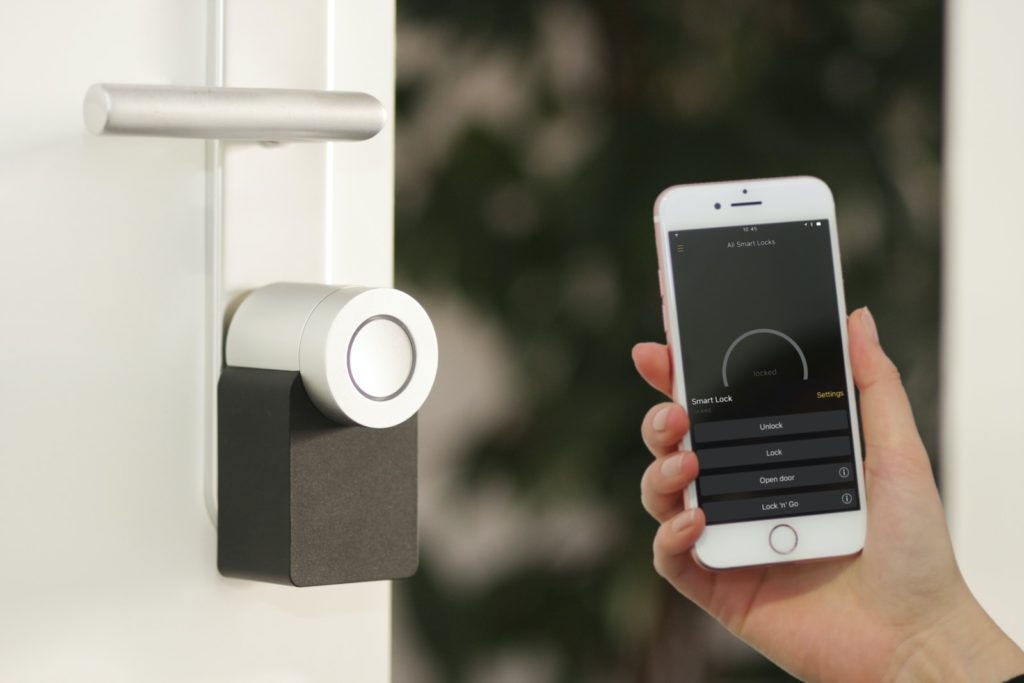
What is a smart home? Easy: “Hey Siri! Hi Alexa. Okay Google!” If any of these words triggered a response in your home, you’re part of a technological revolution that’s just beginning to unravel. In this article, we delve into the fascinating and sometimes unsettling world of Smart Home Tech. From its origins to its current state, we explore the benefits, concerns, and implications of living in a smart home. So fasten your seatbelts as we embark on this journey into the odd, curious, and crazy world of Smart Home Tech.
From Automation to Smart Home Tech

Over the past century, our relentless pursuit of automation has transformed our homes. From early household appliances like vacuum cleaners and washing machines to the recent explosion of Smart Home Tech, we’ve always sought to make our lives more hassle-free. The introduction of voice integration, with devices like the iPhone 4S and Siri, opened the door to a new era of home automation, captivating our imaginations with its futuristic novelty.
In 2014, a significant turning point occurred with the release of Amazon Echo, Apple HomePod, and Google Nest. These devices allowed users to control various aspects of their homes through a single app. Since then, the smart home market has exploded with countless devices, each offering unique capabilities. The concept of a smart home revolves around connecting appliances, lights, thermostats, and even water bottles to the internet, creating the Internet of Things (IoT) ecosystem.
Imagine waking up to your smart bed, adjusting its firmness according to your body weight and sleeping position, all while not disturbing your partner. With a simple voice command, the lights in your house turn on, and your shower starts running at the perfect temperature. By the time you’re done, your coffee is brewed to perfection, tailored to your exact liking. As you leave for work, your thermostat automatically adjusts, and you receive notifications about any potential issues, such as a water leak. With the tap of your smartphone, you connect with a plumber who resolves the issue while you’re away. Your home is secure, comfortable, and seamlessly integrated with your lifestyle.
While the idea of a smart home is fascinating, it also invokes conflicting emotions. There’s a sense of wonder at the incredible advancements in technology, but also a creeping dystopian feeling. Many have reservations about devices that seem to know our needs and wants almost too well. Despite these concerns, smart home devices have gained significant popularity due to their ability to scratch the itch for new and exciting consumer products.
Cons and Concerns of Smart Home Tech

The convenience of smart home tech comes at a price: the surrender of our privacy. With devices continuously collecting data on our lifestyles, there’s a lack of clarity regarding how companies use this information. Vague terms of service, minimal privacy laws, and the risk of hacking create an uncertain landscape. The video footage, audio data, and other information collected by smart devices remain vulnerable to misuse and abuse.
Early iterations of smart home tech faced vulnerabilities that compromised home security. Hacks, firmware updates gone wrong, and server outages left users exposed and helpless. While the industry is improving security measures, the dependence on the internet for basic household functions raises concerns. Instances of remote manipulation, like the Texas power company adjusting thermostats without consent, highlight the potential for abuse. The implications of this technology in the wrong hands are significant, as seen in cases of oppressive surveillance and control.
As the smart home revolution progresses, profit often takes precedence over our well-being. Companies prioritize convenience and efficiency while overlooking potential negative consequences. We’re venturing into a Smart World where technology becomes an indispensable part of our lives, influencing our behavior, thoughts, and communities. The ramifications of such pervasive connectivity are still uncertain, but the rise of loneliness and mental health issues in a technologically advanced era raises valid concerns.
The Paradox of Convenience
The primary selling point of smart home tech is convenience. Saving time on household tasks, reducing energy consumption, and cutting costs are all promised benefits. However, our unbridled desire for convenience may blind us to the impact on our well-being. Mundane tasks like doing the dishes or folding laundry can provide a much-needed escape from the technology-driven life we find ourselves in. It’s crucial to question whether the convenience we seek aligns with our overall well-being.
The Growing Smart Home Takeover
Smart home devices are rapidly becoming ubiquitous, with billions of IoT devices connected worldwide. The trend is irreversible, and it’s futile to resist the smart home takeover. However, we can be mindful of the potential negative effects and strive to mitigate them. Awareness, informed decision-making, and responsible use can help us navigate this technological revolution while safeguarding our privacy, mental well-being, and autonomy.
Mitigating Negative Effects
While embracing smart home tech, we must reflect on the consequences of previous technological advancements. Despite the allure of convenience, we must strike a balance and be mindful of how it affects our lives. Allocating time for offline activities, embracing mundane tasks, and setting boundaries with technology can foster healthier relationships with smart home devices. By taking small steps, we can harness the benefits of technology while preserving our well-being and autonomy.
Conclusion
The world of Smart Home Tech is simultaneously fascinating and disconcerting. As the smart home revolution continues to unfold, we must navigate the complexities and potential pitfalls. While the convenience and efficiency offered by smart devices are undeniable, we must prioritize our privacy, mental well-being, and autonomy. By embracing technology responsibly and being conscious consumers, we can shape a future where smart homes coexist harmoniously with our overall well-being.
For more retail-specific information, read our blog about the importance of strategic store layout designs.
What is a Smart Home: Key Takeaways
- The Rise of Smart Home Tech: From automation to the Internet of Things (IoT), smart home devices have transformed our homes, offering convenience and control over various aspects of daily life.
- Concerns and Privacy Issues: While smart home tech offers convenience, there are valid concerns about privacy and data harvesting. The collection of personal information and potential vulnerabilities raise questions about who has access to our data and how it may be misused.
- The Dark Side of Smart Homes: Vulnerabilities in early smart home systems have exposed security risks and potential abuses of control. From remote manipulation to oppressive surveillance, the power of smart home tech in the wrong hands raises serious ethical concerns.
- Balancing Convenience and Well-being: While the convenience of smart home tech is appealing, it’s important to question its impact on our overall well-being. Setting boundaries, prioritizing offline activities, and being conscious consumers can help mitigate potential negative effects and ensure a healthier relationship with technology.
